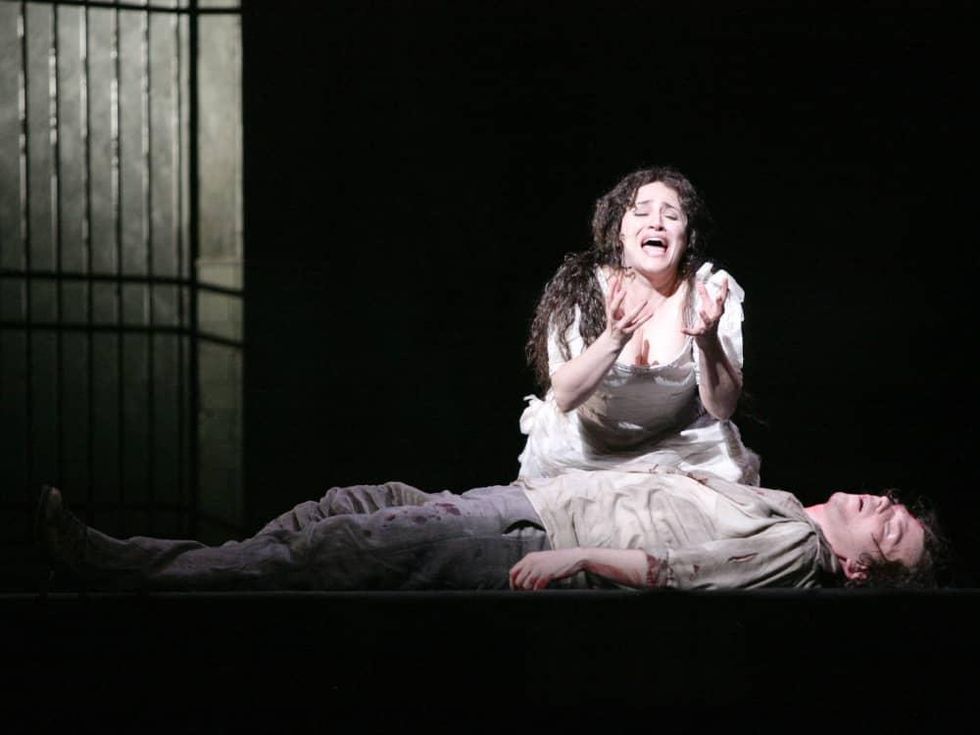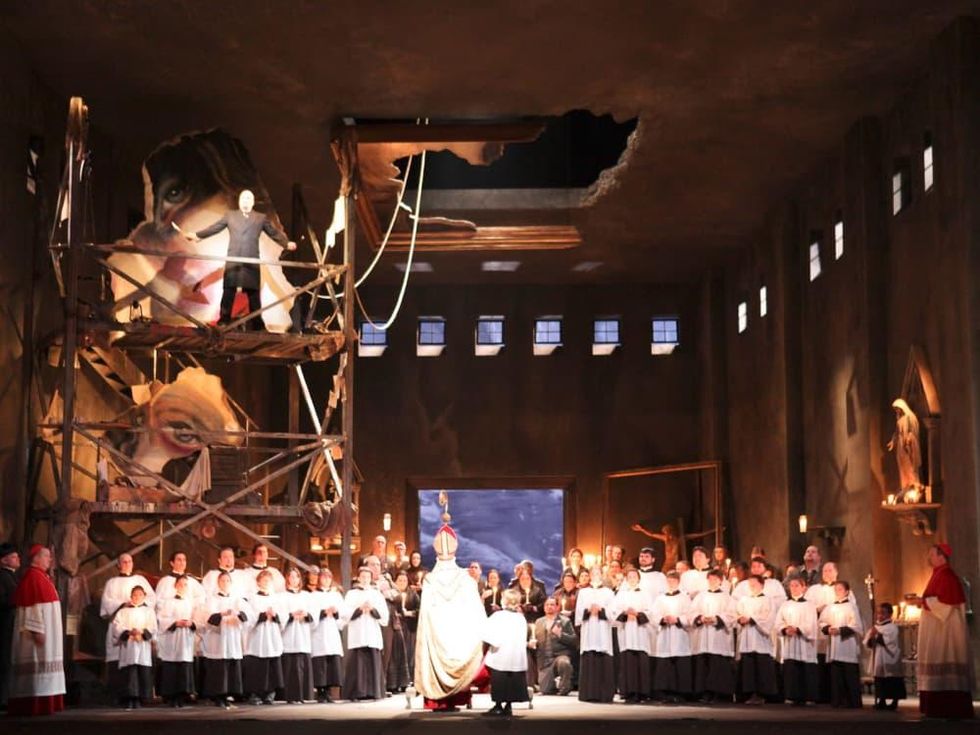The CultureMap Review
Unusual staging and Racette's rich voice make HGO's Tosca memorable

Boston is the traditional tryout town for Broadway-bound new musicals, and Houston is a place where opera singers like to try new roles on for size. Superstar soprano Renée Fleming did her first La Traviata for Houston Grand Opera, Patricia Racette and (if memory serves) Ramon Vargas sang the soprano and tenor leads in Verdi’s Don Carlo for the first time with HGO, and Friday night a Wortham Center audience witnesses Racette's first-ever appearance in the title role of Puccini’s Tosca.
Did she immediately enter the Tosca Hall of Fame? No. There were a few too many diffuse notes, sagging pitches, and prosaic line readings for that. But the power and richness of Racette’s voice make her as qualified to sing the iconic role as anybody else these days.
And she provided an interesting portrayal of a volatile Roman diva who kills a brutal and lecherous police chief to prevent her rape and save the life of her lover. Racette’s Tosca was a flirtatious girl in the first act but a distraught tragedienne and resourceful avenger in the other two acts, when her decidedly un-diva-like costume was a woefully drab gray ball gown with a huge caboose-like ruffle on the rump.
The unusual but not flagrantly nutty staging was by British director John Caird. For some reason there are gaping holes in the ceiling of all three of designer Bunny Christie’s sets (a church, a room in a palace, a prison). Baron Scarpia seems to live or office in a storeroom piled high with wooden crates and augment his police chief’s salary by dealing in black market art objects and cases of wine. Caird’s Tosca doesn’t dramatically leap to her death from the prison roof, she stabs herself in the throat like Puccini’s Madame Butterfly, staggers a bit, and tumbles backward out an open window.
And every now and then a ghostly, barefoot little girl dressed in white appears onstage, apparently to symbolize death, fate, or something. Mostly she just seems to have wandered in from The Lovely Bones.
HGO music director Patrick Summers conducted with more tension and drive than elasticity Friday night, and Alexey Dolgov provided some strong tenorizing as Cavaradossi (Tosca’s paramour) but little in the way of shapely phrases and caressing soft singing. Steven Condy mercifully played the comical church sacristan with a minimum of mugging, and Robert Gleadow sang strongly and was convincingly terror-stricken as the escaped political prisoner Angelotti.
As Scarpia, bass Raymond Aceto struggled with what is really a baritone role and swallowed his words as a consequence. And although his portrayal oozed hair-trigger violence and smarmy lust, with his shaved head he looked too much like Howie Mandel or Mike Myers’ Dr. Evil to be the perfect villain.


